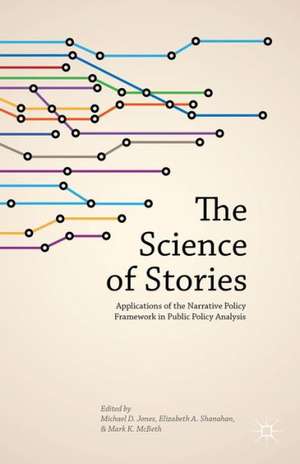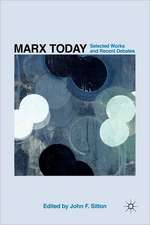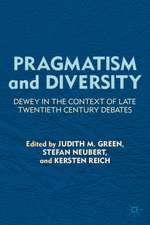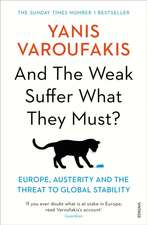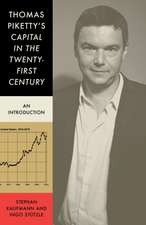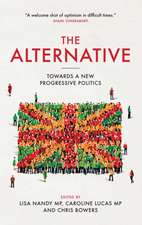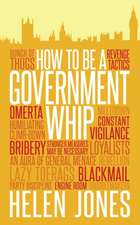The Science of Stories: Applications of the Narrative Policy Framework in Public Policy Analysis
Editat de M. Jones, E. Shanahan, M. McBethen Limba Engleză Hardback – 10 dec 2014
| Toate formatele și edițiile | Preț | Express |
|---|---|---|
| Paperback (1) | 884.98 lei 6-8 săpt. | |
| Palgrave Macmillan US – 10 dec 2014 | 884.98 lei 6-8 săpt. | |
| Hardback (1) | 888.95 lei 6-8 săpt. | |
| Palgrave Macmillan US – 10 dec 2014 | 888.95 lei 6-8 săpt. |
Preț: 888.95 lei
Preț vechi: 1084.08 lei
-18% Nou
Puncte Express: 1333
Preț estimativ în valută:
170.10€ • 178.10$ • 141.09£
170.10€ • 178.10$ • 141.09£
Carte tipărită la comandă
Livrare economică 09-23 aprilie
Preluare comenzi: 021 569.72.76
Specificații
ISBN-13: 9781137370129
ISBN-10: 1137370122
Pagini: 304
Ilustrații: XX, 280 p.
Dimensiuni: 155 x 235 x 20 mm
Greutate: 0.54 kg
Ediția:2014
Editura: Palgrave Macmillan US
Colecția Palgrave Macmillan
Locul publicării:New York, United States
ISBN-10: 1137370122
Pagini: 304
Ilustrații: XX, 280 p.
Dimensiuni: 155 x 235 x 20 mm
Greutate: 0.54 kg
Ediția:2014
Editura: Palgrave Macmillan US
Colecția Palgrave Macmillan
Locul publicării:New York, United States
Cuprins
Contents Preface: The Portneuf School of Narrative; Mark K. McBeth Acknowledgements The Scientific Study of Policy Narratives in the Policy Process 1. Introducing the Narrative Policy Framework; Michael D. Jones, Mark K. McBeth and Elizabeth A. Shanahan 2. Research Design and the Narrative Policy Framework; Jonathan J. Pierce, Aaron Smith-Walter and Holly L. Peterson Micro-Level NPF: Individuals and Policy Narratives 3. The Narrative Policy Framework and the Practitioner: Communicating Recycling Policy; Mark K. McBeth, Donna L. Lybecker and Maria Husmann 4. The Blame Game: Narrative Persuasiveness of the Intentional Causal Mechanism; Elizabeth A. Shanahan, Stephanie M. Adams, Michael D. Jones and Mark K. McBeth Meso-Level NPF: Groups, Coalitions and Policy Narratives 5. The Strategic Use of Policy Narratives: Jaitapur and the Politics of Siting a Nuclear Power Plant in India; Kuhika Gupta, Joseph T. Ripberger and Savannah Collins 6. Narrating the 'Arab Spring': Where Expertise Meets Heuristics in Legislative Hearings; Tom O'Bryan, Claire A. Dunlop and Claudio M. Radaelli 7. Using the Narrative Policy Framework to Understand Stakeholder Strategy and Effectiveness: A Multi-Case Analysis; Deserai Anderson Crow and John Berggren 8. Coalitions are People: Policy Narratives and the Defeat of Ohio Senate Bill 5; Andrew R. Kear and Dominic D. Wells 9. Exploring the Policy Narratives and Politics of Hydraulic Fracturing in New York; Tanya Heikkila, Chris Weible and Jonathan Pierce 10. The Governance of Social Innovation: Connecting Meso and Macro Levels of Analysis; Steven Ney Assessing the NPF 11. Narrative Policy Framework: Contributions, Limitations, and Recommendations; Christopher M. Weible and Edella Schlager 12. Denouement?; Elizabeth A. Shanahan, Mark K. McBeth and Michael D. Jones
Notă biografică
Stephanie M. Adams received her MPA from Montana State University in 2012. She earned her Bachelor of Science from St. Lawrence University in Sociology and Psychology. She has extensive administrative and conservation experience in working with contentious policy issues in the American West. John Berggren is a PhD Candidate in Environmental Studies at the University of Colorado at Boulder, and a research affiliate with Western Water Assessment and the Center for Science and Technology Policy Research.Savannah Collins is currently working as a Data Analyst for the Texas Comptroller of Public Accounts. She received her MPA from The Bush School of Government & Public Service at Texas A&M University in 2014, with foci in policy analysis and quantitative methods. She received her BA in Political Science from the University of Oklahoma in 2012. Her research explores public policy strategies and outcomes, as well as making data-driven decisions for organizational best practices. Deserai Anderson Crow is an Assistant Professor at the University of Colorado Boulder in the Environmental Studies Program, Associate Director of the Center for Environmental Journalism, and is on the faculty of the Center for Science & Technology Policy Research. She earned her Ph.D. in 2008 from Duke University's Nicholas School of the Environment and Earth Sciences. She holds a B.A. in journalism from the University of Colorado Boulder and a Masters of Public Administration from the University of Colorado Denver. Claire A. Dunlop (F) is Senior Lecturer in Politics at the University of Exeter. A public policy and administration scholar, Claire's main fields of interest include the politics of expertise and knowledge utilization; epistemic communities and advisory politics; risk governance; policy learning and analysis; impact assessment; and policy narratives. She explores these conceptual interests at the UK and EU levels principally, and most frequently in relation to agricultural, food and environmental issues. Kuhika Gupta is a postdoctoral research associate at the Center for Energy, Security, and Society at the University of Oklahoma. In addition to completing her PhD at the University of Oklahoma, she also received an MA from the University of Warwick (UK) and a BA from Delhi University (India). She studies public policy, with a special interest in comparative public policy, risk and public policy, and energy policy. Her research has appeared in journals such as Policy Studies Journal and Journal of Comparative Policy Analysis.Tanya Heikkila is an Associate Professor in the School of Public Affairs at the University of Colorado Denver and holds and MPA and PhD from the University of Arizona. Her expertise is in the field of environmental policy and governance, with an emphasis on understanding conflict and cooperation around common-pool resources.Maria A. Husmann is a graduate of the MPA program at Idaho State University and currently works as a management analyst for the City of Tacoma, Washington, in the United States. Andrew R. Kear is an assistant professor at Bowling Green State University, Ohio where he serves as a dual appointee in the Department of Political Science and Department of Environment and Sustainability. He teaches undergraduate and graduate courses in environmental politics, energy and sustainability, public policy, and public administration. He earned a Ph.D. in Political Science from Colorado State University and also holds an MS from Ohio University and a BA from the College of Wooster, both in Geology. His research focuses on energy policy and interest group politics and he has published on western energy issues (California Journal of Politics and Policy) and also on the role of interest groups in elections (Roads to Congress 2008 edited volume).Donna L. Lybecker is an Associate Professor in the Department of Political Science at Idaho State University where she specializes in Environmental Politics and International Relations. Her research activities focus on the Western United States, the North American borders, and Latin America. Recent publications include articles in Environmental Politics, International Journal of Sustainable Society and Politics and Policy. Steven Ney completed his doctorate in the policy sciences at the Department of Comparative Politics in the University of Bergen. Trained as a policy analyst at the University of London, Steven Ney has worked on a wide range of policy issues in a number of research institutes including the LOS Center in Bergen, the Interdisciplinary Centre for Comparative Research in the Social Sciences (ICCR) in Vienna and the International Institute for Applied Systems Analysis in Laxenburg. After spending four years from 2005 as an Assistant Professor of Political Science at Singapore Management University, Steven Ney became Assistant Professor for Policy Science and Social Entrepreneurship at Jacobs University, Bremen in August 2009. Tom O'Bryan is a human rights and international development advocacy professional, with three years' experience in the Democratic Republic of Congo (DRC), Tunisia and Western Sahara. O'Bryan studied at the University of Exeter, American University, Nanjing University and the University of Delhi, and specializes in policy and appropriations to conflict and post-conflict situations in Sub-Saharan Africa, the Middle East and North Africa. He was raised in the UK, but is currently based in the city of Goma in the DRC.'Holly L. Peterson, MPA, is a graduate student pursuing a Ph.D. in Public Policy at Oregon State University. She has also pursued graduate work at Virginia Polytechnic and State University and Auburn University Montgomery. She has published in the Policy Studies Journal. Holly lives with her husband and their dog and cat in Corvallis, Oregon.Jonathan J. Pierce is an Assistant Professor at the Institute of Public Service, Seattle University. He received his PhD in Public Affairs in 2012 from the School of Public Affairs, University of Colorado Denver where he also completed a post-doctoral fellowship examining the politics of hydraulic fracturing. Dr. Pierce's research interests are in policy process, research design and methods, as well as energy and the environment. Claudio Radaelli is professor of political science at the University of Exeter (UK), where he directs the Center for European Governance, a Jean Monnet Center of Excellence. Claudio is co-editor of the European Journal of Political Research and chaired the ECPR standing group on Regulation & Governance 2010 2012. His research interests lie in theoretical policy analysis, policy learning, modes of governance, research design, regulatory reform, and Europeanization. Recently he published Designing Research in the Social Sciences, Sage 2012 (with Fabrizio Gilardi and Martino Maggetti), Research Design in European Studies: Establishing Causality in Europeanization, Palgrave 2012 (co-edited with Theofanis Exadaktylos), and Politics in Italy 2013, Berghahn Books (co-edited with Aldo di Virgilio).Joseph Ripberger is the Deputy Director for Research at the Center for Risk and Crisis Management at the University of Oklahoma and a Research Scientist at the Cooperative Institute for Mesoscale Meteorological Studies. He received his Ph.D. in Political Science and Public Policy from the University of Oklahoma in 2012. His research focuses on risk, decision-making, public opinion, and public policy. His research has appeared in a number of academic outlets, including Policy Studies Journal, Politics & Policy, Risk Analysis, Weather, Climate, and Society, and the Bulletin of the American Meteorological Society. Edella Schlager is a Professor in the School of Government and Public Policy at the University of Arizona. Her research program focuses on common pool resources and comparative analyses of institutions for governing water. She is co-author of two books, Common Waters Diverging Streams, a study of conjunctive water management practices in the western U.S.; and Embracing Watershed Politics, an examination of polycentric governance of watersheds. She is also lead editor of Navigating Climate Change Policy: The Opportunities of Federalism, an exploration of federal climate change policies and processes. Aaron Smith-Walter is a Ph.D. Student at the Center for Public Administration and Policy, at Virginia Tech. His teaching and research interests are in public budgeting, public participation, public transportation, policy process, cultural theory, public administration, post-apocalyptic fiction, and the narrative policy framework (NPF).Chris Weible is Associate Professor at the School of Public Affairs, University of Colorado Denver. He studies policy change, learning, political behavior, coalitions and networks, institutions and collective action, collaborative governance, and the role of scientific and technical information in the policy process. He has authored more than 30 peer-reviewed publications and book chapters and has garnered over $1 million in research grants. Dr. Weible currently serves as the editor for the Policy Studies Journal, the leading journal in theoretically innovative public policy research. Dominic D. Wells is a doctoral student in political science at Kent State University. He earned a Masters of Public Administration and a Bachelors of Arts in political science at Bowling Green State University.
